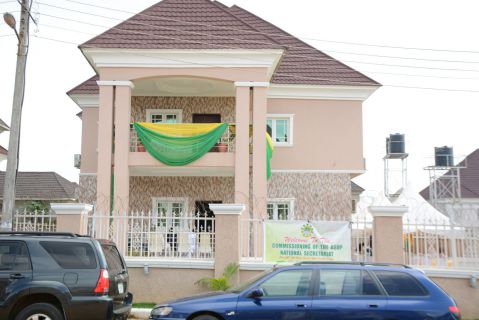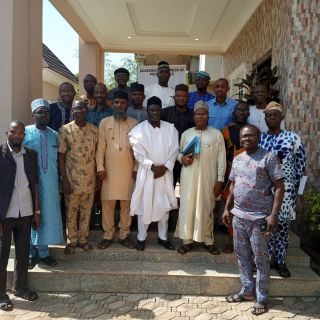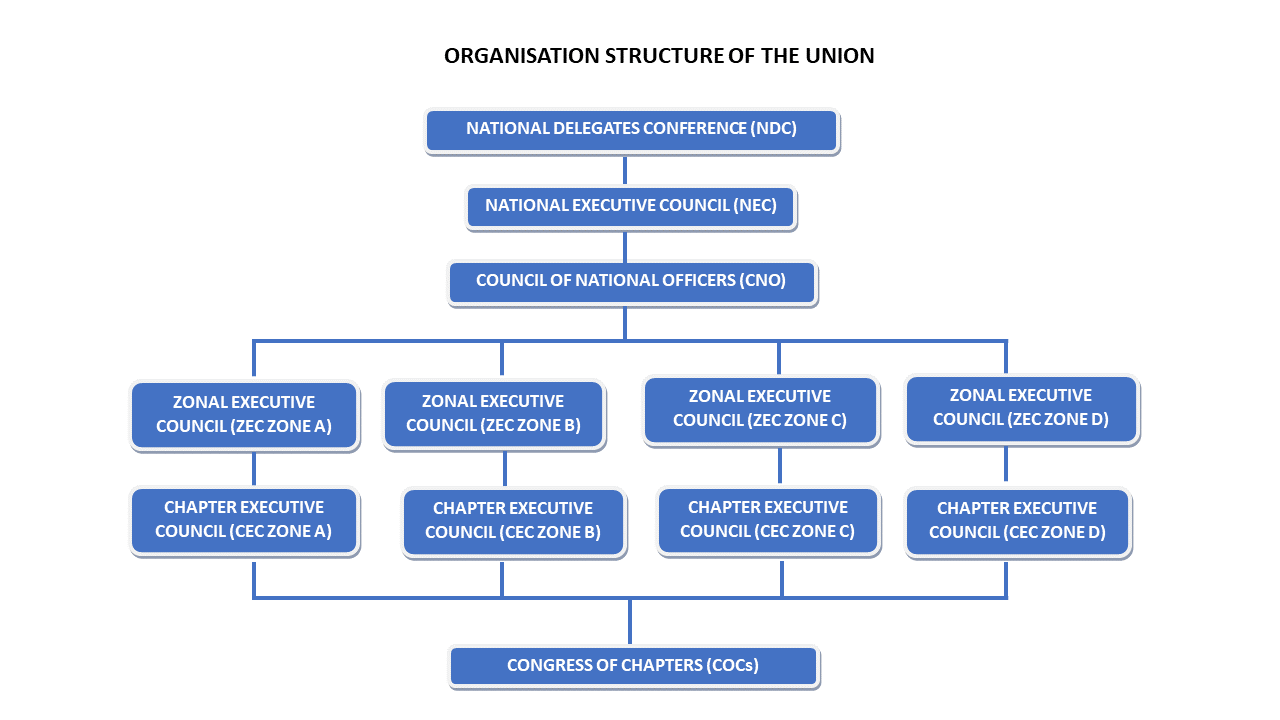BRIEF PROFILE OF THE ACADEMIC STAFF UNION OF POLYTECHNICS (ASUP)
The Academic Staff Union of Polytechnics (ASUP), Nigeria is a registered Trade Union (CAP 437 of 1990). The Union is an affiliate of the Nigeria Labour Congress (NLC). The Union also interfaces with other Unions in the Education sector particularly in the tertiary sub-sector within prescribed limits in its constitution. The Union serves to protect and promote members’ interests as well as that of the Technical Education sub-sector and the Education sector in general.
Membership of the Union covers all Academic Staff (Lecturers, Technologists, Instructors, and Librarians) in all public Polytechnics and Monotechnics in Nigeria.
Activities of the Union are regulated through provisions in the Union’s Constitution approved and gazetted by the Registrar of Trade Unions, Federal Ministry of Labour and Employment, Abuja; provisions of the Trade Union’s Act and provisions of the Nigerian Constitution. The Union also draws from its rich history in terms of traditions and practices. The Union’s legal adviser guides the Union in its observation of these extant laws.
The Union currently has its National Secretariat at Plot 261, Main Street, Mab Global Estate, Karsana District, Gwarinpa, Phase 2, Abuja with its Council of National Officers led by the President, spread across member institutions. The National Officers are responsible for the day-to-day running of the Union and execute decisions of the National Executive Council (NEC) of the Union. The four zones (A, B, C, and D) represent the member Chapters in the North-West, North-East/ North-Central, South West and South-East/ South-South Geopolitical Zones of the Country respectively. Each of the Zones is led by a Zonal Coordinator and is governed through the Zonal Executive Council (ZEC). The member Chapters are led by Chapter Chairmen who govern the Chapters through the Chapter Executive Councils and the Chapter Congresses. The biennial National Delegates’ Conference is the highest decision-making organ of the Union.
The Union is mainly funded by membership subscription fees (Check-off due) which is pegged at 2% of members' consolidated basic salary, deducted at source. The Union also generates funds from the organisation of annual educational programmes like Conferences and Workshops as well as levies and donations from agencies of Government and Non-governmental agencies.

Other sources of funds include sales of publications, memorabilia, and souvenirs of the Union. An external auditor submits audited accounts of the Union to the National Delegates' Conference.
The Union’s accounts are currently domiciled in United Bank for Africa, Adetokumbo Ademola Branch, Abuja.
OBJECTIVES OF THE UNION
The objectives of the Union shall be as stated hereunder:

- 2.01 – To bring together all Academic Staff of Polytechnics, Monotechnics, and Colleges of Technology in Nigeria.
- 2.02 – To advance, project, and promote a good relationship between Academic Staff and their employers.
- 2.03 – To advance, promote and demand proper conditions of service for its members.
- 2.04 – To provide and maintain such service(s) that is/are of benefit and assistance to its members.
- 2.05 – To advance and promote the education and training of its members.
- 2.06 – To establish and maintain high academic performance as well as professional and technological practice.
- 2.07 – To encourage its members to participate actively in the development of technological education and commerce in Nigeria.
- 2.08 – To advance, promote and protect the technological, socio-economic, and cultural interests of the Federal Republic of Nigeria.
- 2.09 – To collaborate with the Federal and State governments in instituting a culture of good governance towards achieving the objectives of Polytechnic/ Monotechnic education in Nigeria.
- 2.10 – To cooperate with other organizations and Unions which share similar objectives.
- 2.11 – To pursue other objectives which are lawful and are not contrary to the spirit and practice of Trade Unionism in Nigeria.

